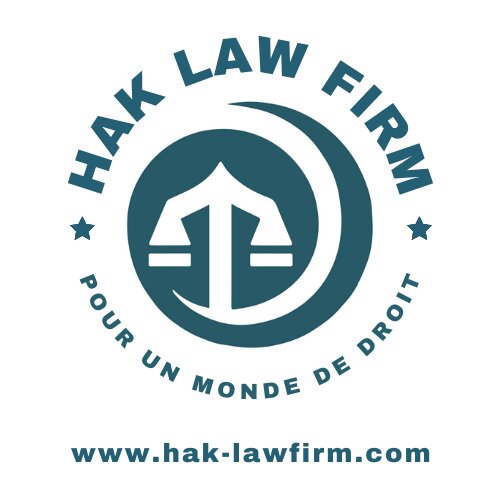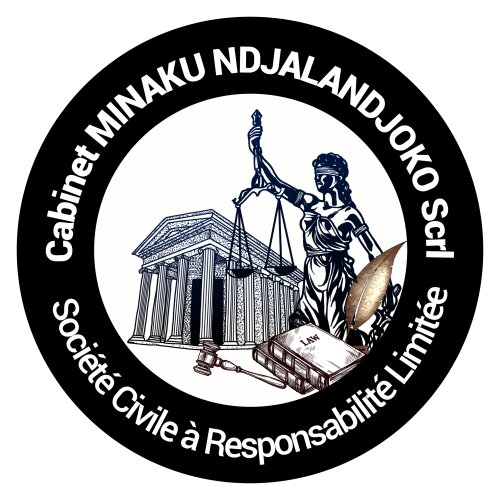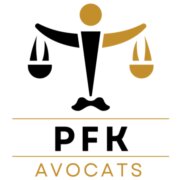Best Sexual Harassment Lawyers in DR Congo
Share your needs with us, get contacted by law firms.
Free. Takes 2 min.
Or refine your search by selecting a city:
List of the best lawyers in DR Congo
About Sexual Harassment Law in DR Congo
Sexual harassment in the Democratic Republic of the Congo (DR Congo) is a significant issue that affects many individuals, particularly women, in various settings including workplaces, educational institutions, and public spaces. Although there have been improvements in the legal framework to combat sexual harassment, challenges such as social stigma, underreporting, and inadequate enforcement of laws persist. The government, with support from various organizations, is working towards creating a safer environment for victims to come forward and seek justice.
Why You May Need a Lawyer
There are several situations where individuals may need to seek legal advice regarding sexual harassment:
- Workplace Harassment: Employees facing unwanted advances or inappropriate behavior from colleagues or superiors might need a lawyer to file complaints or lawsuits.
- Educational Institutions: Students or teachers experiencing harassment may require legal assistance to ensure disciplinary actions are taken against perpetrators.
- Public Assault: Victims of harassment in public spaces could benefit from legal advice to pursue criminal charges or civil actions.
- Retaliation Cases: Individuals who face retaliation after reporting harassment need legal protection and advice.
- Non-compliance by Organizations: When institutions fail to adhere to legal responsibilities in preventing harassment or addressing complaints, legal guidance may be necessary.
Local Laws Overview
Sexual harassment laws in DR Congo are designed to protect individuals and offer remedies for victims. The key aspects include:
- Legal Definitions: The law defines sexual harassment as any unwelcome conduct of a sexual nature, including verbal, non-verbal, or physical conduct.
- Criminal Code Provisions: The Congolese Penal Code includes provisions that criminalize acts of sexual harassment, with penalties ranging from fines to imprisonment.
- Labor Code: The labor code mandates that employers provide a safe working environment and take measures to prevent and address harassment in workplaces.
- Reporting Mechanisms: Victims can report incidents to the police or designated authorities within organizations. The law requires thorough investigations and appropriate actions against offenders.
Frequently Asked Questions
What constitutes sexual harassment under Congolese law?
Sexual harassment includes unwelcome sexual advances, requests for sexual favors, and other verbal or physical conduct of a sexual nature that can occur in workplaces, educational settings, or public places.
Can men be victims of sexual harassment?
Yes, while women are more frequently victims, men can also experience sexual harassment. The law protects all victims, regardless of gender.
What should I do if I am a victim of sexual harassment?
It is important to document the incidents, report them to the appropriate authorities, and seek legal advice to understand your rights and options for justice.
How can employers prevent sexual harassment in the workplace?
Employers should implement comprehensive policies, conduct regular training sessions, establish clear reporting mechanisms, and ensure swift action is taken on any complaints of harassment.
Is confidentiality assured when reporting sexual harassment?
Yes, reports of sexual harassment are typically handled with confidentiality to protect the privacy of the victim and ensure no further harm or retaliation occurs.
What are the potential legal consequences for perpetrators of sexual harassment?
Perpetrators can face criminal charges, fines, imprisonment, or civil lawsuits, which can result in financial compensation for the victim.
Can a third-party report sexual harassment on behalf of a victim?
Yes, in some cases, witnesses or third parties can report harassment if the victim is unable or unwilling to do so themselves.
What role do NGOs play in addressing sexual harassment?
Non-governmental organizations provide support, advocacy, and legal assistance to victims. They also engage in educational efforts to raise awareness and prevent harassment.
Can I appeal a decision if my harassment complaint is dismissed?
Yes, if a complaint is dismissed, victims have the right to appeal the decision and seek further review or escalate to higher authorities.
How are educational institutions addressing sexual harassment?
Schools and universities are required to have policies in place to prevent harassment, provide clear reporting procedures, and take action to protect victims and hold perpetrators accountable.
Additional Resources
Several resources and organizations can provide assistance and information for those dealing with sexual harassment in DR Congo:
- The Human Rights Ministry: Offers legal assistance and advice for victims seeking justice.
- Local NGOs: Organizations such as the Congolese Women's Rights Association provide support and advocacy for victims.
- Hotlines: Confidential helplines are available to offer support and guidance for victims of harassment.
- Legal Aid Clinics: Call or visit local legal aid clinics for free or low-cost legal assistance.
Next Steps
If you are in need of legal assistance regarding sexual harassment in DR Congo, consider taking the following steps:
- Consult with a Lawyer: Seek out legal professionals experienced in handling sexual harassment cases to discuss your situation and understand your rights.
- Gather Evidence: Document incidents of harassment as thoroughly as possible, including dates, times, locations, and names of any witnesses.
- Report the Incident: File a complaint with the appropriate authorities, whether it's within your organization or law enforcement.
- Access Support Services: Reach out to support groups or counseling services for emotional and psychological assistance.
- Stay Informed: Keep abreast of any changes in local laws or policies that might impact your case or your rights as a victim.
Lawzana helps you find the best lawyers and law firms in DR Congo through a curated and pre-screened list of qualified legal professionals. Our platform offers rankings and detailed profiles of attorneys and law firms, allowing you to compare based on practice areas, including Sexual Harassment, experience, and client feedback.
Each profile includes a description of the firm's areas of practice, client reviews, team members and partners, year of establishment, spoken languages, office locations, contact information, social media presence, and any published articles or resources. Most firms on our platform speak English and are experienced in both local and international legal matters.
Get a quote from top-rated law firms in DR Congo — quickly, securely, and without unnecessary hassle.
Disclaimer:
The information provided on this page is for general informational purposes only and does not constitute legal advice. While we strive to ensure the accuracy and relevance of the content, legal information may change over time, and interpretations of the law can vary. You should always consult with a qualified legal professional for advice specific to your situation.
We disclaim all liability for actions taken or not taken based on the content of this page. If you believe any information is incorrect or outdated, please contact us, and we will review and update it where appropriate.
Browse sexual harassment law firms by city in DR Congo
Refine your search by selecting a city.
















